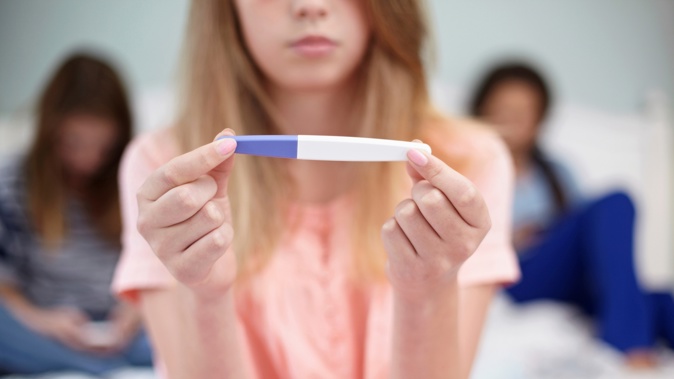
New Zealand women's low uptake of long-lasting contraception is partly to blame for the country's "shocking" rate of unplanned pregnancies, researchers say.
Long-acting reversible contraceptives (LARCs) - such as IUDs and other implants - are 22 times more effective than oral pills, research backed up by Family Planning clinicians revealed.
Researchers say a big part of that comes down to human error but was not the only factor.
Oral pills stop women from ovulating but LARCs also kill the sperm and stop the egg from implanting, says senior lecturer of women's health at the University of Otago Dr Helen Paterson.
Yet, Paterson says LARCs were often the less favoured option.
Family Planning clinician Dr Christine Roke said there were a number of reasons for this - the big one being expense as hormonal IUDs were not Government-funded and costed $340.
However, the non-hormonal IUD and the depo provera injection were free, apart from the cost of the appointment.
For many, accessing the pill or condoms was easier and it was usually the first port of call given by GPs, Roke said.
She said other reasons included horror stories women heard from their friends about IUDs becoming infected or falling out or hurting when the device was put in, but those risks were very low.
"We strongly recommend the 'fit and forget' method as the best form of contraception," Roke told the Herald.
The University of Otago research followed a United States three-year study that tracked over 7000 women - half using oral pills and the other half using LARCs.
The number of women who fell pregnant on oral pills was 22 times higher than the women on LARCs.
Paterson said New Zealand had the sixth highest rate of unplanned pregnancies out of the 36 countries in the Organisation for Economic Co-operation and Development.
"Our rate is shockingly high and that needed to change," Paterson said.
The Growing Up in New Zealand study - which started just over 10 years ago and tracked 7000 Kiwi children - revealed that nearly 40 per cent of pregnancies were unplanned.
This meant the opportunity to make behaviour changes such as stopping alcohol and smoking, and starting to take folic acid, were delayed for almost half of the mothers.
Whether a pregnancy was planned or not, nine out of 10 mothers did not take folic acid as recommended - starting before pregnancy then reducing after the first trimester. One in six took none in the prenatal period.
Paterson concluded that sexual education needed to be taken more seriously and a better understand of LARCs was needed not only by patients but also health-care professionals.
"All LARCs should be funded and made more accessible. If we have the tools to significantly reduce unintended pregnancy, why not offer them?" she said.
Why Holly made the switch?
/arc-anglerfish-syd-prod-nzme.s3.amazonaws.com/public/Y4ASV3OLRBECHLZJAMSICG5VSE.jpg)
For Holly Neilson-Mercer, it took eight months of bleeding to get her to opt for the non-hormonal IUD.
The Auckland mum-of-three said there was no way she could have afforded it but it ended up being her last option and now she hasn't looked back.
"I was lucky my GP called me and asked if I would be comfortable having a doctor who was training to do the insertion do it with my GP overseeing it. My doctor said she would pay for it so I was like 'heck yeah'," the 28-year-old told the Herald.
Neilson-Mercer - whose pregnancies were planned - wanted to stress that for every woman it was different.
"I was hesitant about getting an IUD because I'd heard the horror stories, one of my friends had been rushed into ED after getting an IUD, but I think people need to do their own research."
She recommended women talk to the GP about their options before reading all the anecdotal stories online.
Take your Radio, Podcasts and Music with you









